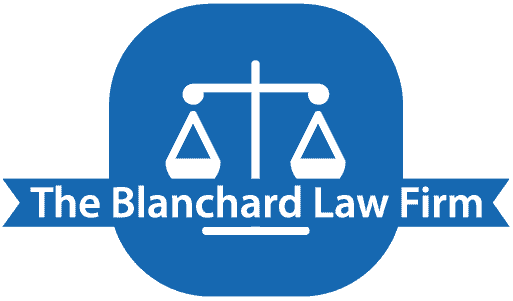
25 Jan Avoiding Probate: Strategies for Streamlining Estate Distribution
Estate Distribution Strategies for Avoiding Probate
Probate is a legal process that can be time-consuming and costly, often causing delays in the distribution of assets to heirs. Many individuals seek ways to avoid probate to ensure a smoother and more efficient transfer of their estate to beneficiaries. In this article, we will explore various strategies for streamlining estate distribution and minimizing the impact of probate. First, let’s define probate. Probate is the court-supervised process of validating a deceased person’s will and ensuring the legal transfer of assets to heirs. During probate, the court oversees the payment of debts and taxes, the identification of heirs, and the distribution of assets according to the deceased person’s will. However, probate can be a lengthy process, and it may involve legal fees and other expenses.
Most Common Strategies for Streamlining Estate Distribution To Avoid Probate
Living Trusts
One effective strategy for avoiding probate is the establishment of a living trust. A living trust is a legal entity that holds assets during a person’s lifetime and transfers them to beneficiaries without the need for probate upon the person’s death. By placing assets into a living trust, individuals maintain control over their assets while simplifying the distribution process for their heirs.
Joint Ownership
Another way to avoid probate is through joint ownership of assets. Joint tenancy and tenancy by entirety are common forms of joint ownership that allow assets to pass directly to the surviving co-owner without going through probate. While joint ownership can be a straightforward solution, it’s essential to consider potential complications, such as conflicts between co-owners or the risk of unintended consequences.
Beneficiary Designations
Assets like life insurance policies, retirement accounts, and bank accounts often allow individuals to designate beneficiaries. By specifying beneficiaries, these assets can bypass probate and transfer directly to the designated individuals. It’s crucial to regularly review and update beneficiary designations to ensure they align with the individual’s current wishes and circumstances.

Less Common Strategies For Avoiding Probate And Streamlining Estate Distribution
Gifts and Transfers
Making gifts or transfers of assets during one’s lifetime is another strategy to avoid probate. By reducing the size of the estate before death, individuals can minimize the assets subject to probate. However, there are gift tax considerations, and individuals should be mindful of potential tax implications when employing this strategy.
Small Estate Procedures
In some jurisdictions, there are simplified probate procedures for small estates. If the total value of an estate falls below a certain threshold, it may qualify for expedited probate processes, which are typically faster and less expensive. Understanding the specific rules and requirements for small estate procedures in a given jurisdiction is crucial when considering this strategy.
Payable-on-Death (POD) and Transfer-on-Death (TOD) Accounts
Certain financial accounts, such as bank accounts and investment accounts, offer payable-on-death (POD) or transfer-on-death (TOD) options. By naming beneficiaries for these accounts, individuals can facilitate the direct transfer of assets to the designated beneficiaries without probate involvement.
Navigating Estate Distribution
Strategies for streamlining estate distribution can be a complex and emotionally charged process, requiring careful planning and consideration. The first step involves a thorough assessment of the deceased individual’s assets, liabilities, and existing estate planning documents, such as wills or trusts. Executors or administrators, appointed to oversee the distribution, must adhere to legal procedures and deadlines, ensuring the orderly transfer of assets to heirs. Communication with beneficiaries is crucial during this phase, as transparency can help manage expectations and mitigate potential conflicts. Professional guidance from attorneys or financial advisors can provide invaluable assistance in navigating the intricacies of estate distribution, helping to interpret legal documents, fulfill tax obligations, and address any challenges that may arise.
In addition to legal and financial considerations, the emotional aspect of estate distribution should not be underestimated. The passing of a loved one can be a difficult time for heirs, and conflicts may arise over inheritances. Sensitivity, empathy, and clear communication are essential elements for those involved in the process. Mediation or family meetings facilitated by professionals can provide a forum for open discussions, fostering understanding and collaboration among heirs. By navigating estate distribution with a combination of legal expertise and emotional intelligence, families can work towards a smoother and more harmonious resolution during a challenging period of transition.

Benefits Of Hiring A Probate Lawyer For Strategies for Streamlining Estate Distribution
Engaging the services of a lawyer to navigate estate planning and avoid probate can offer individuals numerous benefits. One of the primary advantages is the expertise and legal knowledge that attorneys bring to the table. Estate laws can be complex and vary by jurisdiction, making it essential to have a professional who understands the intricacies of probate avoidance strategies. Lawyers can assess an individual’s unique situation, recommend tailored solutions such as living trusts, joint ownership structures, or beneficiary designations, and ensure that all legal documents are correctly drafted and executed.
Furthermore, hiring a lawyer provides a layer of protection against potential legal challenges or disputes that may arise during the probate process. Attorneys can help minimize the risk of contested wills or disagreements among heirs, reducing the likelihood of protracted legal battles. Their role includes ensuring that all legal requirements are met, from properly drafting and executing documents to addressing any potential issues that may arise during the probate avoidance process. With a lawyer’s guidance, individuals can navigate the complexities of estate planning with confidence, knowing that their wishes will be legally upheld, and the distribution of assets will proceed smoothly for the benefit of their heirs.
Other Considerations For Probate And Strategies For Streamlining Estate Distribution
Beyond legal strategies, there are other crucial factors to consider when streamlining estate distribution and navigating the probate process. Effective communication among family members is paramount to prevent misunderstandings and conflicts. Clearly articulating one’s wishes and intentions in legal documents can help avoid disputes among heirs. Regularly updating wills, trusts, and beneficiary designations to reflect changing circumstances, such as marriages, divorces, or the birth of new family members, is also essential. Additionally, individuals should maintain a comprehensive inventory of their assets and liabilities, including digital assets and passwords, to facilitate a smoother transition for their loved ones. Seeking professional advice from financial planners or accountants can provide valuable insights into tax implications and other financial considerations. By addressing these non-legal aspects alongside legal strategies, individuals can enhance the overall effectiveness of their estate distribution plan and minimize potential challenges for their heirs.

Conclusion
Avoiding probate is a goal for many individuals learning strategies for streamlining estate distribution process and reducing the burden on their heirs. The strategies mentioned above, including living trusts, joint ownership, beneficiary designations, gifts and transfers, small estate procedures, and POD/TOD accounts, offer various options to achieve this objective. However, it’s essential for individuals to carefully consider their unique circumstances, consult with legal professionals, and stay informed about relevant laws and regulations to implement the most effective strategy for their estate planning needs.
Related Questions
What is probate, and why should I avoid it?
Probate is the legal process of administering a deceased person’s estate. Avoiding it is beneficial to expedite asset distribution, maintain privacy, and reduce potential conflicts among heirs.
How does a living trust help in avoiding probate?
A living trust allows for the transfer of assets outside of probate, ensuring a smoother distribution process. It provides greater privacy and control over your estate.
Can joint ownership completely bypass probate?
Joint ownership simplifies probate but may not entirely bypass it. The extent depends on the type of joint ownership and state laws.
Are payable-on-death (POD) accounts suitable for all assets?
POD accounts work well for bank accounts and investments but may not cover all assets. Consider other strategies for a comprehensive estate plan.
Is gifting a viable strategy for avoiding probate?
Gifting can be effective in reducing the size of your estate subject to probate. However, it requires careful planning and consideration of tax implications.
How can an estate planning attorney assist in probate avoidance?
Estate planning attorneys specialize in tailoring strategies to your unique situation. Their expertise ensures a legally sound plan for avoiding probate and streamlining estate distribution.

Sorry, the comment form is closed at this time.